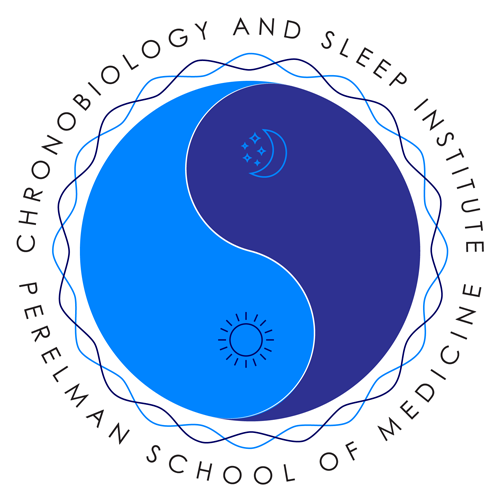- Home
- Education and Training
Education and Training
The CSI supports and promotes training in chronobiology and sleep at all levels
Undergraduate
An undergraduate course in Chronobiology and Sleep is taught by Dr. David Raizen. Exposure to the field through this course has led to a number of undergraduates seeking research experiences in chronobiology laboratories. It also provides teaching opportunities for interested postdoctoral fellows.
Graduate Programs
Students interested in the area can enroll in one of several different graduate programs, most of which are under the Biomedical Graduate Studies umbrella:
Graduate students pursue their PhDs in the laboratories of CSI faculty. A graduate course in circadian rhythms and sleep is usually offered in alternate years.
Post-doctoral
CSI laboratories train postdoctoral fellows who come from all parts of the world. The office of Biomedical Postdoctoral Programs (BPP) oversees postdoctoral training and provides workshops in career developments and research conduct.
Research Opportunities for Physicians
Fellowships are available through the Division of Sleep Medicine in the Department of Medicine (see below) and through the Department of Otolaryngology.
Our 12-month ACGME-accredited clinical fellowship program offers an outstanding comprehensive curriculum designed to prepare physicians to become exceptional board-certified specialists in academic sleep medicine. Trainees complete rotations in numerous settings including the University of Pennsylvania Health System, Philadelphia VA Medical Center, and the Children’s Hospital of Philadelphia.
The program also emphasizes research opportunities to further equip physicians interested in becoming independent investigators. After the initial year, fellows may go on to pursue a 2-3 year postdoctoral research fellowship in one of four distinct tracks (Basic Science, Patient-Oriented Research, Clinical Epidemiology, Translational Research, Health Policy, & Medical Education).
Our graduates have achieved a 100% board pass rate and are consistently successful in securing desired positions across the country. Furthermore, countless alumni go on to become leaders in the field of sleep medicine.
Applicants to the sleep fellowship-training program are required to have completed a residency in internal medicine, neurology, otolaryngology, pediatrics, psychiatry, family medicine or anesthesiology. Individuals with subspecialty training such as pulmonary medicine are encouraged to apply.
The University of Pennsylvania Sleep Medicine Fellowship Program participates in the National Residency Matching Program (NRMP). Applications will ONLY be accepted through the Electronic Residency Application Service (ERAS). Please check the ERAS and NRMP websites for additional information including specific instructions and timelines for applications and match dates, respectively.
Additional documents required for application include:
- Curriculum Vitae
- Personal Statement
- Three Letters of Recommendation (one must be from the applicant's most recent Program Director)
- USMLE Transcript
- Medical Student Performance Evaluation (MSPE) or Dean's Letter
- Medical School Transcript
- ECFMG Status Report, if applicable
Given the multidisciplinary structure of the program, the fellowship curriculum is tailored to allow each trainee to concentrate on a particular area of specialization, i.e. pediatric or adult sleep medicine, through established tracks.
Under ACGME guidelines, each fellow is required to complete a core curriculum that meets the minimum requirements for clinical training in both adult and pediatric sleep medicine while allowing flexibility to concentrate further in a particular area of interest.
For pediatric track trainees, this will require:
- Outpatient pediatric sleep medicine experiences at CHOP
- Outpatient and inpatient adult sleep medicine experiences spread over the University of Pennslyvania Health System (UPHS) and Philadelphia VAMC sites
- Continuity practice experiences in both adult and pediatric sleep medicine
- Review of polysomnography and other sleep-related diagnostic studies
- Additional electives to allow for a concentrated experience in sleep disorders in children
For adult track trainees, this will require:
- Outpatient and inpatient adult sleep medicine experiences spread over the UPHS and Philadelphia VAMC sites
- Outpatient pediatric sleep medicine experiences at CHOP
- Continuity practice experience in adult sleep medicine*
- Review of polysomnography and other sleep-related diagnostic studies
- Elective time to allow for a concentrated experience in sleep disorders in adult
*Adult track trainees can also request an optional second continuity practice experience in pediatric sleep medicine.
Please feel free to contact us with any inquires or questions about our program or the application process.
Penn Sleep Fellow Coordinator
PennSleepMedicineFellowship@pennmedicine.upenn.edu
215-349-8816



